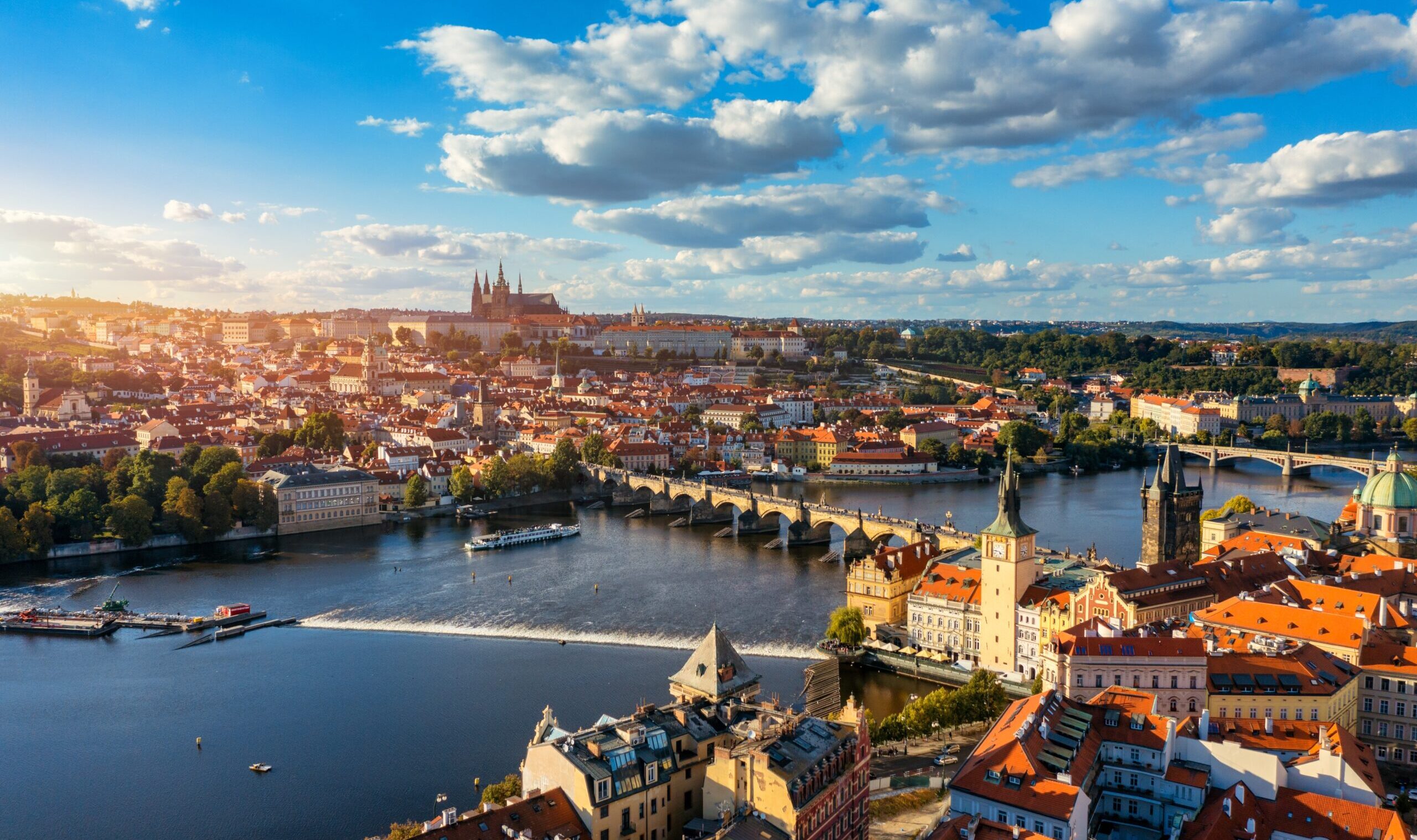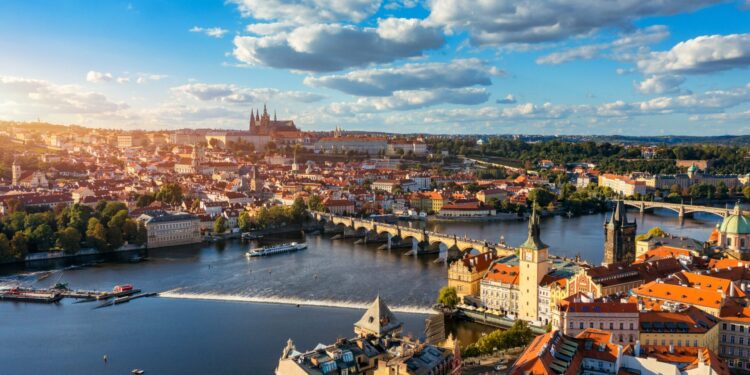Summertime Blues in Old Europe?
America’s freedoms remain its greatest strength; Europe is falling behind.

Traveling in Europe as an American citizen, one is never far from the echoes of history. I was reminded of this during a weeklong visit last month to four Central and Eastern European nations – the Czech Republic, Austria, Slovenia, and Slovakia. My organization, The Fund for American Studies (TFAS), organized this trip through the heart of Europe to explore relics of the Second World War and Cold War, while also gaining insight on preserving the future of European civilization.
Coinciding with our visit, the 2024 calendar contains many reminders of what Europeans, united in liberty, can accomplish. This November, the continent will celebrate the 35th anniversary of the fall of the Berlin Wall, when Europe was finally free after 28 years of division by the Iron Curtain. This year also saw the 75th anniversary of the founding of NATO—crucial in upholding a shared Atlantic and European commitment to security against encroaching authoritarianism—following the Second World War.
Unfortunately, we’re also reminded that this month marks 85 years since Germany invaded Poland, presaging the future division of Europe, first by the Third Reich and soon after by the Soviet Union. And just like that unwanted reminder of past wars, Europe is once again at risk of democratic decline and creeping statism—two trends we once hoped we’d consigned to the ash heap of history—and in dire need of a rebirth in leadership that turns the continent back towards political and economic freedom.
A recent report by Sweden’s V-Dem Institute outlines these troubling trends. While the report shows that democracy has been in a 15-year retreat against autocracy worldwide—a troubling international trend in its own right—this “democratic backsliding” is actually most stark in Central and Eastern Europe.
In fact, the report now considers countries like Hungary and Serbia to be “electoral autocracies”—places where elections are neither fair nor free, and where fundamental rights like freedom of expression and freedom of association are too weak to promote a free and flourishing society. Other nations like Austria, Slovenia, and Slovakia have also witnessed lesser, but still concerning, democratic declines in just the last three years—after more than 20 years of maintaining strong traditions of political liberty.
Unfortunately, Europe’s uncertain future extends beyond the guarantee of political freedom. The continent also displays less commitment to classically liberal economics than it has over the past decade or longer. As a result, Europe is increasingly at risk of economic stagnation.
The Heritage Foundation’s 2024 Index of Economic Freedom notes that Austria, Slovenia, and Slovakia have all experienced declines in economic liberty in just the last five years. Each is now considered only “moderately free”—far from the level of freedom enjoyed by the U.S. and other nations with strong economies. The Czech Republic, often considered a bright spot in Central Europe, has also experienced a similar decline in economic freedom over the past half-decade.
Such academic studies mirror real-world outcomes. In 2008, the European and U.S. economies were about equally sized. Today, the U.S. economy is almost twice as large. Average European incomes are 27 percent lower than the U.S., and average wages are 37 percent lower. It’s no wonder that the former European Central Bank chief Mario Draghi recently warned that the E.U. is falling behind rivals on economic competitiveness due to Europe’s failure to innovate or train skilled workers.
None of this is to argue that the United States is perfect. We face our own self-inflicted challenges in maintaining the freedoms that have made America what former Secretary of State Madeleine Albright called “the indispensable nation.” Nevertheless, I’d like to think we will continue to set the example with regard to economic freedom and liberty, particularly for our Europe. The economic and political ideals we’ve championed helped reshape a continent and the lives of millions for the better.
Ultimately, my summer trip through Europe was a reminder that history is never really at an end. I spoke with one European official who explained to me that he was a socialist, “because he wanted people to have quality health care, a good education, and decent employment.” I told him those very outcomes were the reasons I rejected socialism and favor economic freedom.
I wish I could say I was optimistic about the future of European liberty. It is likely up to the next generation—many of whom have attended TFAS programs in Prague that have been exposing young people to the ideas of individual rights and economic freedom since 1993—to ensure that Europe’s turn away from liberty is reversed.
The post Summertime Blues in Old Europe? appeared first on The American Conservative.
Shop For Night Vision | See more…
Shop For Survival Gear | See more…
-
Sale!

Japanese 6 inch Double Edged Hand Pull Saw
Original price was: $19.99.$9.99Current price is: $9.99. Add to cart -
Sale!

Stainless Steel Survival Climbing Claw Carabiner Multitool Folding Grappling Hook
Original price was: $19.99.$9.99Current price is: $9.99. Add to cart -
Sale!

Tactical Camo Nylon Body Armor Hunting Vest With Pouch
Original price was: $49.99.$39.99Current price is: $39.99. Select options This product has multiple variants. The options may be chosen on the product page

































 Reaction & Commentary
Reaction & Commentary











